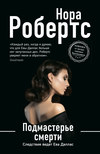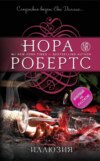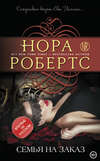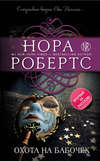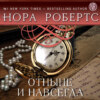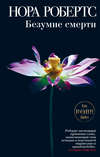Читать книгу: «Secret Star: the classic story from the queen of romance that you won’t be able to put down»
Secret Star
Stars of Mithra
Book Three
Nora Roberts

He was standing face-to-face with a dead woman… and she was holding a gun. Lieutenant Seth Buchanan’s homicide investigation—and his heart—were thrown into turmoil when Grace Fontaine turned up very much alive—and in possession of one of the huge blue diamonds known as the Stars of Mithra.
The cool, controlled cop never let his feelings get in the way of his job, and everything he knew about the notorious heiress told him she was poison. But in her irresistible presence, it was hard to remember there was any mystery more important to solve than that of Grace herself.
To generous hearts
Contents
Chapter One
Chapter Two
Chapter Three
Chapter Four
Chapter Five
Chapter Six
Chapter Seven
Chapter Eight
Chapter Nine
Chapter Ten
Chapter Eleven
Chapter Twelve
Chapter 1
The woman in the portrait had a face created to steal a man’s breath and haunt his dreams. It was, perhaps, as close to perfection as nature would allow. Eyes of laser blue whispered of sex and smiled knowingly from beneath thick black lashes. The brows were perfectly arched, with a flirty little mole dotting the downward point of the left one. The skin was porcelain-pure, with a hint of warm rose beneath—just warm enough that a man could fantasize that heat was kindling only for him. The nose was straight and finely sculpted.
The mouth—and, oh, the mouth was hard to ignore—was curved invitingly, appeared pillow-soft, yet strong in shape. A bold red temptation that beckoned as clearly as a siren’s call.
Framing that staggering face was a rich, wild tumble of ebony hair that streamed over creamy bare shoulders. Glossy, gorgeous, generous. The kind of hair even a strong man would lose himself in—fisting his hands in all that black silk, while his mouth sank deep, and deeper, into those soft, smiling lips.
Grace Fontaine, Seth thought, a study in the perfection of feminine beauty.
It was too damn bad she was dead.
He turned away from the portrait, annoyed that his gaze and his mind kept drifting back to it. He’d wanted some time alone at the crime scene, after the forensic team finished, after the M.E. took possession of the body. The outline remained, an ugly human-shaped silhouette marring the glossy chestnut floor.
It was simple enough to determine how she’d died. A nasty tumble from the floor above, right through the circling railing, now splintered and sharp-edged, and down, beautiful face first, into the lake-size glass table.
She’d lost her beauty in death, he thought, and that was a damn shame, too.
It was also simple to determine that she’d been given some help with that last dive.
It was, he mused, looking around, a terrific house. The high ceilings offered space and half a dozen generous skylights gave light, rosy, hopeful beams from the dying sun. Everything curved—the stairs, the doorways, the windows. Female again, he supposed. The wood was glossy, the glass sparkling, the furniture all obviously carefully selected antiques.
Someone was going to have a tough time getting the bloodstains out of the dove-gray upholstery of the sofa.
He tried to imagine how it had all looked before whoever helped Grace Fontaine off the balcony stormed through the rooms.
There wouldn’t have been broken statuary or ripped cushions. Flowers would have been meticulously arranged in vases, rather than crushed into the intricate pattern of the Oriental rugs.
There certainly wouldn’t have been blood, broken glass, or layers of fingerprint dust.
She’d lived well, he thought. But then, she had been able to afford to live well. She’d become an heiress when she turned twenty-one, the privileged, pampered orphan and the wild child of the Fontaine empire. An excellent education, a country-club darling, and the headache, he imagined, of the conservative and staunch Fontaines, of Fontaine Department Stores fame.
Rarely had a week gone by that Grace Fontaine didn’t warrant a mention in the society pages of the Washington Post, or a paparazzi shot in one of the glossies. And it usually hadn’t been due to a good deed.
The press would be screaming with this latest, and last, adventure in the life and times of Grace Fontaine, Seth knew, the moment the news leaked. And they would be certain to mention all of her escapades. Posing nude at nineteen for a centerfold spread, the steamy and very public affair with a very married English lord, the dalliance with a hot heartthrob from Hollywood.
There’d been other notches in her designer belt, Seth remembered. A United States senator, a bestselling author, the artist who had painted her portrait, the rock star who, rumor had it, had attempted to take his own life when she dumped him.
She’d packed a lot of men into a short life.
Grace Fontaine was dead at twenty-six.
It was his job to find out not only the how, but the who. And the why.
He had a line on the why already. The Three Stars of Mithra—a fortune in blue diamonds, the impulsive and desperate act of a friend, and greed.
Seth frowned as he walked through the empty house, cataloging the events that had brought him to this place, to this point. Since he had a personal interest in mythology, had since childhood, he knew something about the Three Stars. They were the stuff of legends, and had once been grouped in a gold triangle that had been held in the hands of a statue of the god Mithra.
One stone for love, he remembered, skimming through details as he climbed the curved stairs to the second level. One for knowledge, and the last for generosity. Mythologically speaking, whoever possessed the Stars gained the god’s power. And immortality.
Which was, logically, a crock, of course. Wasn’t it odd, though, he mused, that he’d been dreaming lately of flashing blue stones, a dark castle shrouded in mist, a room of glinting gold? And there was a man with eyes as pale as death, he thought, trying to clear the hazy details. And a woman with the face of a goddess.
And his own violent death.
Seth shook off the uneasy sensation that accompanied his recalling the snippets of dreams. What he required now were facts, basic, logical facts. And the fact was that three blue diamonds weighing something over a hundred carats apiece were worth six kings’ ransoms. And someone wanted them, and didn’t mind killing to gain possession.
He had bodies piling up like cordwood, he thought, dragging a hand through his dark hair. In order of death, the first had been Thomas Salvini, part owner of Salvini, gem experts who had been contracted by the Smithsonian Institutions to verify and assess the three stones. Evidence pointed to the fact that verifying and assessing hadn’t been quite enough for Thomas Salvini, or his twin, Timothy.
Over a million in cash indicated that they’d had other plans—and a client who wanted the Stars for himself.
Added to that was the statement from one Bailey James, the Salvinis’ stepsister, and eyewitness to fratricide. A gemologist with an impeccable reputation, she claimed to have discovered her stepbrothers’ plans to copy the stones, sell the originals and leave the country with the profits.
She’d gone in to see her brothers alone, he thought with a shake of his head. Without contacting the police. And she’d decided to face them down after she shipped two of the stones to her two closest friends, separating them to protect them. He gave a short sigh at the mysterious minds of civilians.
Well, she’d paid for her impulse, he thought. Walking in on a vicious murder, barely escaping with her life—and with her memory of the incident and everything before it blocked for days.
He stepped into Grace’s bedroom, his heavylidded gold-toned eyes cooly scanning the brutally searched room.
And had Bailey James gone to the police even then? No, she’d chosen a P.I., right out of the phone book. Seth’s mouth thinned in annoyance. He had very little respect and no admiration for private investigators. Through blind luck, she’d stumbled across a fairly decent one, he acknowledged. Cade Parris wasn’t as bad as most, and he’d managed—through more blind luck, Seth was certain—to sniff out a trail.
And nearly gotten himself killed in the process. Which brought Seth to death number two. Timothy Salvini was now as dead as his brother. He couldn’t blame Parris overmuch for defending himself from a man with a knife, but taking the second Salvini out left a dead end.
And through the eventful Fourth of July weekend, Bailey James’s other friend had been on the run with a bounty hunter. In a rare show of outward emotion, Seth rubbed his eyes and leaned against the door jamb.
M. J. O’Leary. He’d be interviewing her soon, personally. And he’d be the one telling her, and Bailey James, that their friend Grace was dead. Both tasks fell under his concept of duty.
O’Leary had the second Star and had been underground with the skip tracer, Jack Dakota, since Saturday afternoon. Though it was only Monday evening now, M.J. and her companion had managed to rack up a number of points—including three more bodies.
Seth reflected on the foolish and unsavory bail bondsman who’d not only set Dakata up with the false job of bringing in M.J., but also moonlighted with blackmail. The hired muscle who’d been after M.J. had likely been part of some scam of his and had killed him. Then they’d had some very bad luck on a rain-slicked road.
And that left him with yet another dead end.
Grace Fontaine was likely to be third. He wasn’t certain what her empty house, her mangled possessions, would tell him. He would, however, go through it all, inch by inch and step by step. That was his style.
He would be thorough, he would be careful, and he would find the answers. He believed in order, he believed in laws. He believed, unstintingly, in justice.
Seth Buchanan was a third-generation cop, and had worked his way up the rank to lieutenant due to an inherent skill for police work, an almost terrifying patience, and a hard-edged objectivity. The men under him respected him—some secretly feared him. He was well aware he was often referred to as the Machine, and took no offense. Emotion, temperament, the grief and the guilt civilians could indulge in, had no place in the job.
If he was considered aloof, even cold and controlled, he saw it as a compliment.
He stood a moment longer in the doorway, the mahogany-framed mirror across the wide room reflecting him. He was a tall, well-built man, muscles toned to iron under a dark suit jacket. He’d loosened his tie because he was alone, and his night-wing hair was slightly disordered by the rake of his fingers. It was full and thick, with a slight wave. He pushed it back from an unsmiling face that boasted a square jaw and tawny skin.
His nose had been broken years before, when he was in uniform, and it edged his face toward the rugged. His mouth was hard, firm, and rare to smile. His eyes, the dark gold of an old painting, remained cool under straight black brows.
On one wide-palmed hand he wore the ring that had been his father’s. On either side of the heavy gold were the words Serve and Protect.
He took both duties seriously.
Bending, he picked up a pool of red silk that had been tossed on the mountain of scattered clothing heaped on the Aubusson carpet. The callused tips of his fingers skimmed over it. The red silk gown matched the short robe the victim had been wearing, he thought.
He wanted to think of her only as the victim, not as the woman in the portrait, certainly not as the woman in those new and disturbing dreams that disrupted his sleep. And he was irritated that his mind kept swimming back to that stunning face—the woman behind it. That quality was—had been, he corrected—part of her power. That skill in drilling into a man’s mind until he was obsessed with her.
She would have been irresistible, he mused, still holding the wisp of silk. Unforgettable. Dangerous.
Had she slipped into that little swirl of silk for a man? he wondered. Had she been expecting company—a private evening of passion?
And where was the third Star? Had her unexpected visitor found it, taken it? The safe in the library downstairs had been broken open, cleaned out. It seemed logical that she would have locked something that valuable away. Yet she’d taken the fall from up here.
Had she run? Had he chased her? Why had she let him in the house? The sturdy locks on the doors hadn’t been tampered with. Had she been careless, reckless enough to open the door to a stranger while she wore nothing but a thin silk robe?
Or had she known him?
Perhaps she’d bragged about the diamond, even shown it off to him. Had greed taken the place of passion? An argument, then a fight. A struggle, a fall. Then the destruction of the house as cover.
It was an avenue, he decided. He had her thick address book downstairs, and would go through it name by name. Just as he, and the team he assigned, would go through the empty house in Potomac, Maryland, inch by inch.
But he had people to see now. Tragedy to spread and details to tie up. He would have to ask one of Grace Fontaine’s friends, or a member of her family, to come in and officially identify the body.
He regretted, more than he wanted to, that anyone who had cared for her would have to look at that ruined face.
He let the silk gown drop, took one last look at the room, with its huge bed and trampled flowers, the scatter of lovely old antique bottles that gleamed like precious gems. He already knew that the scent here would haunt him, just as that perfect face painted beautifully in oils in the room downstairs would.
It was full dark when he returned. It wasn’t unusual for him to put long, late hours into a case. Seth had no life to speak of outside of the job, had never sought to make one. The women he saw socially, or romantically, were carefully, even calculatingly, selected. Most tolerated the demands of his work poorly, and they rarely cemented a relationship. Because he knew how difficult and frustrating those demands of time, energy and heart were on those who waited, he expected complaints, sulking, even accusations, from the women who felt neglected.
So he never made promises. And he lived alone.
He knew there was little he could do here at the scene. He should have been at his desk—or at least, he thought, have gone home just to let his mind clear. But he’d been pulled back to this house. No, to this woman, he admitted. It wasn’t the two stories of wood and glass, however lovely, that dragged at him.
It was the face in the portrait.
He’d left his car at the top of the sweep of the drive, and walked to the house sheltered by grand old trees and well-trimmed shrubs green with summer. He’d let himself in, turned the switch that had the foyer chandelier blazing light.
His men had already started the tedious door-to-door of the neighborhood, hoping that someone, in another of the big, exquisite homes, would have heard something, seen anything.
The medical examiner was slow—understandably, Seth reminded himself. It was a holiday, and the staff was down to bare minimum. Official reports would take a bit longer.
But it wasn’t the reports or lack of them that nagged at his mind as he wandered back, inevitably, to the portrait over the glazed-tile hearth.
Grace Fontaine had been loved. He’d underestimated the depth friendship could reach. But he’d seen that depth, and that shocked and racking grief in the faces of the two women he’d just left.
There had been a bond between Bailey James, M. J. O’Leary and Grace that was as strong as he’d ever seen. He regretted—and he rarely had regrets—that he’d had to tell them so bluntly.
I’m sorry for your loss.
Words cops said to euphemize the death they lived with—often violent, always unexpected. He had said the words, as he had too often in the past, and watched the fragile blonde and the cat-eyed redhead simply crumble. Clutching each other, they had simply crumbled.
He hadn’t needed the two men who had ranged themselves as the women’s champions to tell him to leave them alone with their grief. There would be no questions, no statements, no answers, that night. Nothing he could say or do would penetrate that thick curtain of grief.
Grace Fontaine had been loved, he thought again, looking into those spectacular blue eyes. Not simply desired by men, but loved by two women. What was behind those eyes, what was behind that face, that had deserved that kind of unquestioning emotion?
“Who the hell were you?” he murmured, and was answered by that bold, inviting smile. “Too beautiful to be real. Too aware of your own beauty to be soft.” His deep voice, rough with fatigue, echoed in the empty house. He slipped his hands in his pockets, rocked back on his heels. “Too dead to care.”
And though he turned from the portrait, he had the uneasy feeling that it was watching him. Measuring him.
He had yet to reach her next of kin, the aunt and uncle in Virginia who had raised her after the death of her parents. The aunt was summering in a villa in Italy and was, for tonight, out of touch.
Villas in Italy, he mused, blue diamonds, oil portraits over fireplaces of sapphire-blue tile. It was a world far removed from his firmly middle-class up-bringing, and from the life he’d embraced through his career.
But he knew violence didn’t play favorites.
He would eventually go home to his tiny little house on its postage-stamp lot, crowded together with dozens of other tiny little houses. It would be empty, as he’d never found a woman who moved him to want to share even that small private space. But his home would be there for him.
And this house, for all its gleaming wood and acres of gleaming glass, its sloping lawn, sparkling pool and trimmed bushes, hadn’t protected its mistress.
He walked around the stark outline on the floor and started up the stairs again. His mood was edgy—he could admit that. And the best thing to smooth it out again was work.
He thought perhaps a woman with as eventful a life as Grace Fontaine would have noted those events—and her personal feelings about them—in a diary.
He worked in silence, going through her bedroom carefully, knowing very well that he was trapped in that sultry scent she’d left behind.
He’d taken his tie off, tucked it in his pocket. The weight from his weapon, snug in his shoulder harness, was so much a part of him it went unnoticed.
He went through her drawers without a qualm, though they were largely empty now, as their contents were strewn around the room. He searched beneath them, behind them and under the mattress.
He thought, irrelevantly, that she’d owned enough clothing to outfit a good-size modeling troupe, and that she’d leaned toward soft materials. Silks, cashmeres, satins, thin brushed wools. Bold colors. Jewel colors, with a bent toward blues.
With those eyes, he thought as they crept back into his mind, why not?
He caught himself wondering how her voice had sounded. Would it have fit that sultry face, been husky and low, another purr of temptation for a man? He imagined it that way, a voice as dark and sensual as the scent that hung on the air.
Her body had fit the face, fit the scent, he mused, stepping into her enormous walk-in closet. Of course, she’d helped nature along there. And he wondered why a woman would feel impelled to add silicone to her body to lure a man. And what kind of pea-brained man would prefer it to an honest shape.
He preferred honesty in women. Insisted on it. Which, he supposed, was one of the reasons he lived alone.
He scanned the clothes still hanging with a shake of his head. Even the killer had run out of patience here, it seemed. The hangers were swept back so that garments were crowded together, but he hadn’t bothered to pull them all out.
Seth judged that the number of shoes totaled well over two hundred, and one wall of shelves had obviously been fashioned to hold handbags. These, in every imaginable shape and size and color, had been pulled out of their slots, ripped open and searched.
A cupboard had held more—sweaters, scarves. Costume jewelry. He imagined she’d had plenty of the real sparkles, as well. Some would have been in the now empty safe downstairs, he was sure. And she might have a lockbox at a bank.
That he would check on first thing in the morning.
She’d enjoyed music, he mused, scanning the wireless speakers. He’d seen speakers in every room of the house, and there had been CDs, tapes, even old albums, tossed around the living area downstairs. She’d had eclectic taste there. Everything from Bach to the B-52s.
Had she spent many evenings alone? he wondered. With music playing through the house? Had she ever curled up in front of that classy fireplace with one of the hundreds of books that lined the walls of her library?
Snuggled up on the couch, he thought, wearing that little red robe, with her million-dollar legs tucked up. A glass of brandy, the music on low, the starlight streaming through the roof windows.
He could see it too well. He could see her look up, skim that fall of hair back from that staggering face, curve those tempting lips as she caught him watching her. Set the book aside, reach out a hand in invitation, give that low, husky purr of a laugh as she drew him down beside her.
He could almost taste it.
Because he could, he swore under his breath, gave himself a moment to control the sudden up-beat of his heart rate.
Dead or alive, he decided, the woman was a witch. And the damn stones, preposterous or not, only seemed to add to her power.
And he was wasting his time. Completely wasting it, he told himself as he rose. He was covering ground best covered through rules and routine. He needed to go back, light a fire under the M.E., push for an estimated time of death. He needed to start calling the numbers in the victim’s address book.
He needed to get out of this house that smelled of this woman. All but breathed of her. And stay out of it, he determined, until he was certain he could rein in his uncharacteristic imaginings.
Annoyed with himself, irked by his own deviation from strict routine, he walked back through the bedroom. He’d just started down the curve of the stairs when a movement caught his eye. His hand reached for his weapon. But it was already too late for that.
Very slowly, he dropped his hand, stood where he was and stared down. It wasn’t the automatic pointed at his heart that stunned him motionless. It was the fact that it was held, steady as a rock, in the hand of a dead woman.
“Well,” the dead woman said, stepping forward into the halo of light from the foyer chandelier. “You’re certainly a messy thief, and a stupid one.” Those shockingly blue eyes stared up at him. “Why don’t you give me one good reason why I shouldn’t put a hole in your head before I call the police?”
For a ghost, she met his earlier fantasy perfectly. The voice was a purr, hot and husky and stunningly alive. And for the recently departed, she had a very warm flush of temper in her cheeks. It wasn’t often that Seth’s mind clicked off. But it had. He saw a woman, runway-fresh in white silk, the glint of jewels at her ears and a shiny silver gun in her hand.
He pulled himself back roughly, though none of the shock or the effort showed as he met her demand with an unsmiling response. “I am the police.”
Her lips curved, a generous bow of sarcasm. “Of course you are, handsome. Who else would be creeping around a locked house when no one’s at home but an overworked cop on his beat?”
“I haven’t been a beat cop for quite some time. I’m Buchanan. Lieutenant Seth Buchanan. If you’d aim your weapon just a little to the left of my heart, I’ll show you my badge.”
“I’d just love to see it.” Watching him, she slowly shifted the barrel of the gun. Her heart was thudding like a jackhammer with a combination of fear and anger, but she took another casual step forward as he reached two fingers into his pocket. The badge looked real enough, she mused. What she could see of the identification with the gold shield on the flap that he held up.
And she began to get a very bad feeling. A worse sinking in the stomach sensation than she’d experienced when she pulled up to the drive, saw the strange car and the lights blazing inside her empty house.
She flicked her eyes from the badge up to his again. Damned if he didn’t look more like a cop than a crook, she decided. Very attractive, in a straight-edged, buttoned-down sort of fashion. The solid body, broad of shoulder and narrow of hip, appeared ruthlessly disciplined.
Eyes like that, cool and clear and golden brown, that seemed to see everything at once, belonged to either a cop or a criminal. Either way, she imagined, they belonged to a dangerous sort of man.
Dangerous men usually appealed to her. But at the moment, as she took in the oddity of the situation, her mood wasn’t receptive.
“All right, Buchanan, Lieutenant Seth, why don’t you tell me what you’re doing in my house.” She thought of what she carried in her purse—what Bailey had sent her only days before—and felt that unsettling sensation in her stomach deepen.
What kind of trouble are we in? she wondered. And just how do I slide out of it with a cop staring me down?
“Have you got a search warrant to go along with that badge?” she demanded.
“No, I don’t.” He’d have felt better, considerably better, if she’d put the gun down altogether. But she seemed content to hold it, aiming it lower now, no less steadily, but lower. Still, his composure had snapped back. Keeping his eyes on hers, he came down the rest of the stairs and stood in the lofty foyer, facing her. “You’re Grace Fontaine.”
She watched him tuck his badge back into his pocket, while those unreadable cop’s eyes skimmed over her face. Memorizing features, she thought, irritated. Making mental note of any distinguishing marks. Just what the hell was going on?
“Yes, I’m Grace Fontaine. This is my property, my home. And as you’re in it, without a proper warrant, you’re trespassing. As calling a cop seems superfluous, maybe I’ll just call my lawyer.”
He angled his head, and unwillingly caught a whiff of that siren’s scent of hers. Perhaps it was that, and feeling its instant and unwelcome effect on his system, that had him speaking without thought.
“Well, Ms. Fontaine, you look damn good for a dead woman.”
Бесплатный фрагмент закончился.












